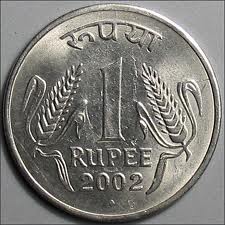Most fortunes are built on innovation. Innovation has always been a vehicle for growth of humankind. Businesses have also advanced and grown on original ideas helping the innovators to greater fortune. On the other hand, before implementing these innovations a lot of thought should be given to the feasibility of the idea.
Let us consider the tale of a businessman who observed that the business was paying 10-20% more to buy changes and coins. At the same time it was essential to have them for efficient running of the business. Then he came up with an idea.
He offered a scheme where customers could bring in small change and coins worth Rs. 900 and buy goods worth Rs. 1000.
When he received reports on the effectiveness of the scheme he found that very few had availed of this offer as it is difficult for people to get that much money in changes. The businessman modified the scheme so that customers could bring in Rs. 90 in change and buy goods worth Rs. 100. This time it worked and the sales figure increased noticeably. Therefore, the businessman not only raised his sales figures but also converted the premium he was paying for changes and coins to a perceived discount. This resulted in a nice growth in sales.
Having change coins in retail is not only beneficial for the business, it is absolutely essential. It allows billing to be faster. According to an informal survey, around Rs. 2350 in small changes should be kept at the cash counter at the beginning of the day. 10 hundred rupees notes, 20 fifty rupees notes and the rest in smaller denominations of Rs. 10, Rs. 5, Rs. 2 and Re. 1 is a good option.
Effects of change and coins in retail
- Customers and cashiers involved in a heated argument over change is a common issue. Often they try to find a compromise. Many times, the sale is cancelled due to the lack of change. These situations can be easily avoided by having sufficient change in the cash counter.
- Customers might enjoy taking a long time to shop for goods but are always in a hurry when billing is concerned. Keeping loose change at the counter makes billing faster and keeps the customer happy.
Of course, changing the method of billing to incorporate credit cards is a viable option. The need for change does not arise. Then again, the business needs to outlay capital to set up the credit card billing system including swap machines etc. The question of training the cashier to operate the whole credit card system is also to be considered. Keeping loose change in the cash till solves such problems.
Of course, there is a flip side to this practice. Whereas, it is difficult to steal money of big denominations like Rs. 500 or Rs. 1000, it is relatively easy for a dishonest employee to get away with stealing small change. If this goes on for a long period of time, the amount lost by the business adds up to a sufficient figure. This can be avoided to a great extent by employing efficient cash drawer balancing in the evening.
On the whole, considering both the positive and negative effects, it is safe to conclude that keeping small change is definitely beneficial for a company.




